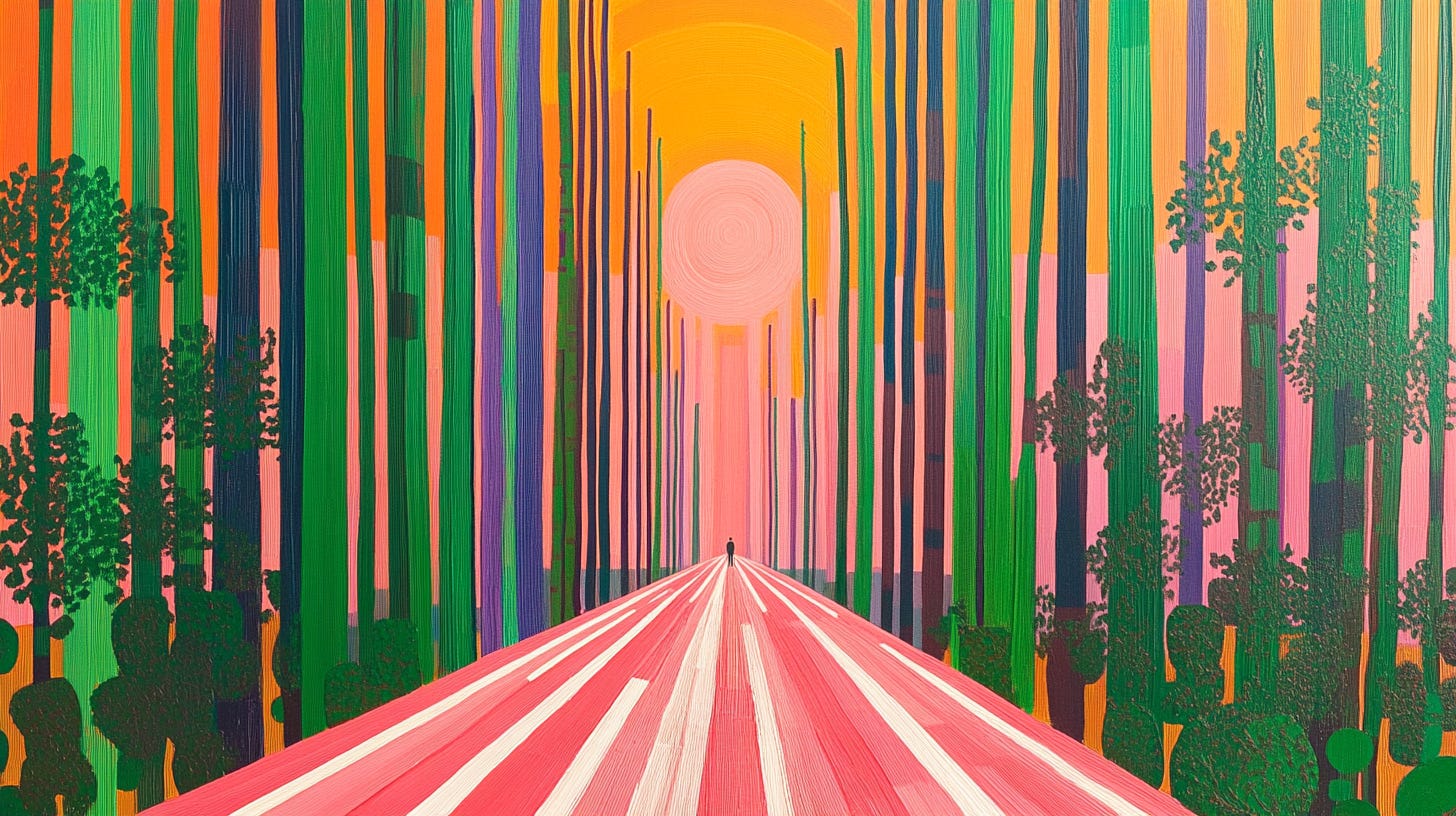Today, as the sun reaches its highest arc in the sky, we mark the solstice—the longest day of the year. It’s a moment celebrated across cultures and millennia as a turning point, a cosmic hinge between darkness and light. Ancient civilizations from the Egyptians to the Druids to Indigenous peoples of the Americas held ceremonies recognizing this day’s profound significance: the triumph of light over darkness, a promise of renewal and rebirth.
Yet, the solstice also reminds us of the shadow it counters—the long dark night. In myth and psychology, the long dark night represents a period of deep trial, suffering, and transformation. It is not merely the absence of light, but a testing ground for resilience and vision. For many around the world today, this metaphor is all too real.
We live in a time rife with profound challenge and upheaval. The violent raids by ICE across the U.S., tearing families apart under a cloud of fear and injustice; the escalating conflict between Iran and Israel casting a longer shadow over global peace; political polarization fracturing communities and sowing distrust. A long dark night presses hard on our collective spirit.
But the solstice can offer us all something essential: clarity. The longest day shines a light not just on the world’s wounds, but on the roots of injustice and pain that have festered in darkness. Perhaps this light is not merely illumination but an invitation—a call to recognize our shared humanity amid division and despair.
Historically, solstice celebrations have not only been about rejoicing in the sun’s return but about acknowledging the darkness that makes that light meaningful. The ancients built stone circles like Stonehenge to mark these moments. Monuments that stand as reminders of cycles of death and rebirth, of enduring through hardship toward hope.
May we carry that spirit forward. Empathy—the practice of seeing clearly into others’ experiences, of listening deeply without judgment—is a contemporary practice each of us can employ to honor the solstice. A practice to move beyond performative gestures to sustained action that seeks justice, healing, and connection.
These actions can extend not only to the displaced families and communities fighting for dignity and freedom but also to those caught within systems of power—ICE officers, local police, National Guard members—who may feel trapped in jobs that ask them to act against their conscience. May they find the courage to step away from these oppressive roles and move toward the right side of history. A history that has shown us, from soldiers in oppressive regimes to bureaucrats enforcing unjust laws, that “just following orders” is a dangerous surrender of moral agency.
The solstice urges us to answer not with complacency but with courage and compassion. To hold fast to the belief that, even in the darkest nights, the light can lead us home.
There is no simple fix, no single act that will dissolve the darkness. But by grounding ourselves in both ancient wisdom and present-day empathy, we can nurture the resilience and vision needed to guide us through this long dark night toward a dawn of justice and eventual peace.
Today is a reminder that light, however long delayed, always returns—and with it, the chance to see the world and each other anew.
What shadows are you carrying that need to be illuminated?
How might you hold space for both the pain and the possibility within yourself and those around you?
In what ways can you lean into empathy—not as a fleeting sentiment but as a deliberate, disciplined practice—to bridge divides and restore connection?
Consider the systems and roles that challenge our moral compass.
How can you cultivate courage to question not only your own actions but those of the institutions you engage with?
Where might you find allies—unexpected or unlikely—to stand with you on the side of justice and healing?
This solstice, I invite you to be both witness and participant in this effort. To recognize that the long dark night is not a curse but a threshold. A place where transformation begins. And that your voice, your choices, your courage to act with empathy can be a beacon for others.
Until everyone is free, no one is truly free. May this longest day inspire us to walk bravely toward that shared freedom—one small act at a time.
Take good care,
MV





💜🤘🏻
This deeply resonates, thank you Michael, the message I hope most consider.